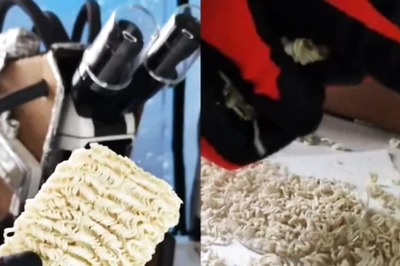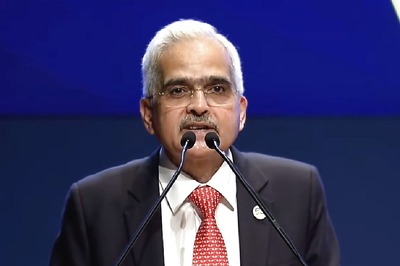
views
New Delhi: India, the world's largest milk producer, on Friday banned exports of milk powder and its derivative casein to rein in rising prices in the domestic market.
The ban, announced by the Commerce Ministry, will come into effect immediately and will be valid till "further orders".
Milk prices have risen by about 20 per cent in the retail market and by 12 per cent at the wholesale level in the last one year, adding to the food inflation which is well into the double digit. Food inflation was 11.05 per cent for the week ended February 5.
"The export of milk powders (including skimmed milk powder, whole milk powder, dairy whitener and infant milk foods), casein and casein products has been prohibited and hence not allowed to be exported till further orders," said
the Directorate General of Foreign Trade (DGFT).
The decision came a day after an Empowered Group of Ministers, headed by Finance Minister Pranab Mukherjee, reviewed the price situation of commodities.
The government last month had withdrawn export incentives on these products.
India exported milk powder and casein worth Rs 500 crore last fiscal. Reacting on the move, Managing Director of Gujarat Co-operative Milk Marketing Federation Ltd - which sells milk under 'Amul' brand - R S Sodhi said the decision would help contain the prices.
"Looking at the current scenario it is a good decision as this would help improve availability of milk and keep prices under check,' Sodhi said.
However,he said the government should review the decision once the prices stabilise.
India's annual production of milk was 112 million tonne. In an another notification, the DGFT said that onion exports are allowed through state trading enterprises (STEs).
"The export of onions is now allowed through STEs subject to applicable minimum export price (MEP) depending upon the variety of onions," it said. The decision came after farmers' protest over crash in domestic prices within two months of touching Rs 80 a kg. The onion shipments were allowed at a MEP of USD 600 (About Rs 28,000) per tonne.
It also said that export of onions in cut form, in sliced form and broken in powder form has been made freely exportable without any MEP. The government had banned onion exports in the last week of December, 2010 to augment domestic supply and contain rising onion prices, which had touched Rs 70-80 per kg.
The measure, along with action against hoarders and arrival of fresh crop, led to crash in prices to Rs 4-12 kg in the wholesale, leading to protests in Nashik and other growing areas of Maharashtra. In the retail markets, onion prices are ruling at Rs 20-25 a kg.




















Comments
0 comment